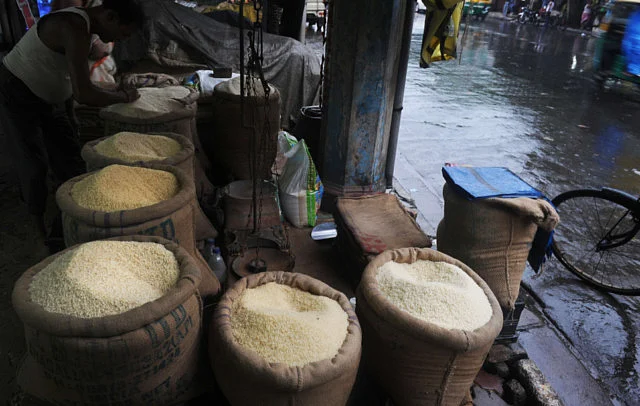India’s rice exports fall over COVID-19
Logistics delays allow other exporters like Thailand to win key orders at higher prices

Mumbai: Indian rice traders have stopped signing new export contracts amid the nationwide lockdown to curb the spread of coronavirus, as labour shortages and logistics disruptions have hampered the delivery of even existing contracts.
The halt in exports from the world’s biggest exporter is allowing rival countries such as Thailand to raise shipments in the short-term and lift global prices, forcing millions of poor consumers in Africa to pay higher prices.
“Shipments have stalled as transport has become very difficult because of the lockdown,” said B.V. Krishna Rao, president of the Rice Exporters Association (REA). “Drivers are not coming and labour is not available at mills and ports,” .
Indian traders have stopped offering quotes to overseas buyers as they are not sure when they would be able to ship their cargoes. Export volumes have fallen by four to five times, said Prem Garg, chairman of the Lal Mahal Group, which exports rice to more than 44 countries.
About 400,000 tonnes of non-basmati rice and 100,000 tonnes of basmati rice, meant for March-April delivery, are either stuck at ports or in the pipeline due to the lockdown, exporters said. New Delhi mainly exports non-basmati rice to Bangladesh, Nepal, Benin and Senegal, and premium basmati rice to Iran, Saudi Arabia and Iraq.
As Cambodia, Vietnam and Myanmar curbed their rice exports, demand for Indian rice surged, but traders are not signing new contracts, said Nitin Gupta, vice-president of trader Olam India’s rice business.
Thailand, the only key exporter to offer rice currently, has seen its export prices soared to their highest in seven years this week. Before the lockdown, India was offering 5 per cent broken parboiled variety {RI-INBKN5-P1} at around $365 per tonne free-on-board basis. Thailand is now been offering the same grade at around $540 per tonne.
“After the lockdown, there will be a huge demand for Indian rice, as India is in a sweet spot in terms of offering competitive prices,” said Olam’s Gupta.
Since India has vast surplus stocks, it could start cashing in on demand once labour shortages ease, said REA’s Rao.
Steep drop
India’s rice exports in 2019 fell 18.1 per cent from a year earlier to 9.87 million tonnes, the lowest in eight years, as demand moderated from key Asian and African buyers. India is likely to produce 117.47 million tonnes of rice in 2019-20 against an annual consumption of about 100 million tonnes, with state inventories at 31 million tonnes. If the lockdown is extended, or the pandemic spreads among key buying nations, denting demand, India’s rice industry could suffer major losses.
Network Links
GN StoreDownload our app
© Al Nisr Publishing LLC 2026. All rights reserved.